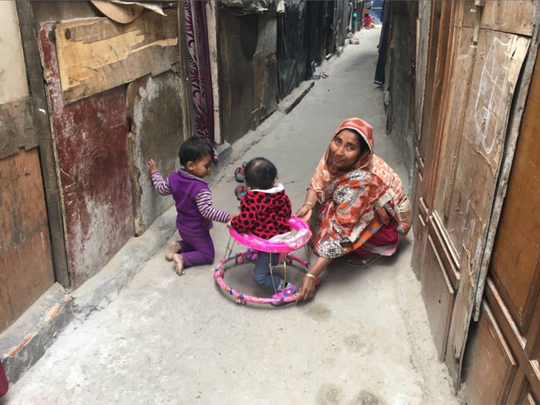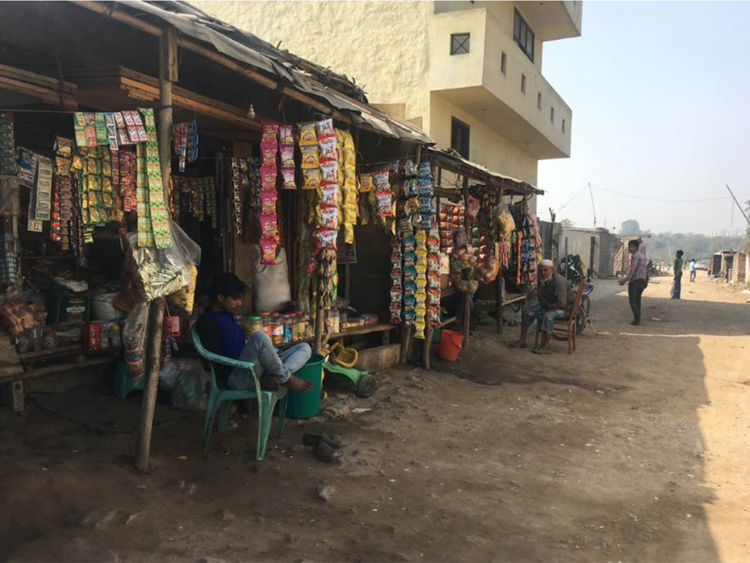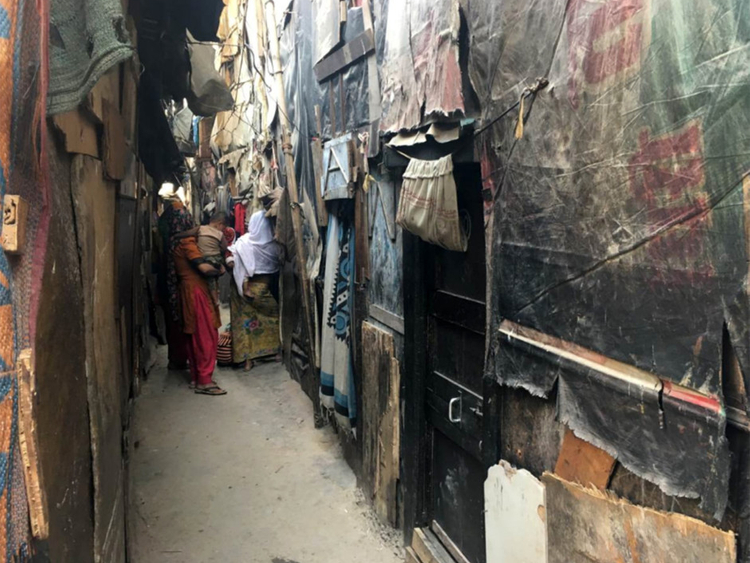
NEW DELHI
When Hujjat Islam heard a fire had razed a Rohingya camp in the locality of Kalindi Kunj in New Delhi, his first reaction was relief: it could have been him and his family, their belongings burnt to ashes, if he had not found a home for them elsewhere in the city.
The fire last month gutted the flimsy shacks of plywood and tarpaulin of about 220 Rohingya on a plot of land belonging to Muslim charity Zakat Foundation. There were no casualties.
Islam, who fled to Bangladesh from Myanmar in 2002 and to India six years later, lives in a small rented home and has a regular job, unlike most other refugees in the city.
“As refugees, finding jobs and homes are huge problems. We don’t have money, we don’t have documents, so we are forced to stay where we can, and do any job available,” he said.
“For those in the camp, it was even worse — their homes got flooded in the rain, the women couldn’t go out. When you are able to work and have some money, it is a little better,” he said.
Islam is among thousands of Rohingya Muslims who have settled in India in recent years after fleeing violence and persecution in Myanmar.
But here too, they face a long fight to secure jobs, homes and documentation.
Their situation is exacerbated by the fact that India is not a signatory to the 1951 Refugee Convention, which spells out legal obligations to protect refugees. It also does not have a domestic law to ensure their rights.
“India has a very strong tradition of accepting refugees. But it’s more a charity-based approach than a rights-based one, and that’s problematic,” said Jessica Field, an assistant professor at the O.P. Jindal Global University in Delhi.
“The legal precariousness means the majority of refugees head for cities, where they can be anonymous and find work. But they are also more vulnerable there, and can struggle to access basic services,” said Field, who has studied refugees in Delhi.
Limited citizenship
India has long been a safe haven in a volatile region, home to more than 200,000 refugees and asylum seekers, many of whom were forced to flee conflict or persecution in nearby countries including Sri Lanka, Afghanistan and Myanmar.
In recent years many have headed to New Delhi, where UNHCR (United Nations High Commission for Refugees), also known as the UN Refugee Agency is located, to get their ID cards.
In the city, men find daily-wage jobs in construction or in the markets.
Women often have greater freedom to work and move about, but may also feel more afraid and isolated as they are not in their community, said Field.
“Refugees, just as many others, want to live in urban areas, hoping that they can enjoy increased access to basic services and better opportunities,” said Ipshita Sengupta, a policy associate at UNHCR.
“Living outside camps provides such opportunities.”
The Indian government offers prima facie recognition for two refugee groups — Tibetans and Sri Lankan Tamils — because of historic religious and ethnic connections, and recently proposed to give Tibetans more welfare benefits.
Some 54,000 Chakma and Hajong who fled Bangladesh more than five decades ago are set to get limited citizenship, while Maharashtra state has granted property rights to Hindu refugees who left Pakistan 70 years ago.
A 2016 bill proposed to make illegal migrants who are Hindus, Sikhs, Buddhists and Christians from Afghanistan, Pakistan and Bangladesh eligible for citizenship.
But Prime Minister Narendra Modi’s government has taken a tough stance on Rohingyas.
A petition against deportation is pending in the top court.
There is compelling evidence of refugees’ contribution to to a nation’s economy: a 2015 UN study found that with every dollar spent on refugees, roughly $0.50 is added to the economy through multiplier effects.
The UNHCR has partnered with civic groups in Delhi to train and place refugees in jobs: two examples are of catering groups run by Afghan and Somali refugee women making dishes from their homelands.
A separate initiative led by Delhi University students employs half a dozen Afghan refugee women, making edible bowls and cutlery from millets and wheat flour.
“The opportunity to work and earn a living is one of the most effective ways to rebuild lives,” said Sengupta. “These initiatives also help build bridges with local communities,” she said.
Rebuilding
For now, the Rohingyas in Kalindi Kunj in Delhi are rebuilding their homes after the fire, and everyone lives in fear of arrest or deportation every day, said Islam.
“No one wants to leave their homes and go to another country. But we are helpless,” he said.
“This is a big city, we are not here to take away anyone else’s jobs or homes.”
— Reuters
BOX
UNEQUAL POLICY
In India, there are some 38,000 refugees and asylum-seekers registered with UNHCR, of whom 17,000 are Rohingya.
The unequal policy stance is stoking tensions even amongst refugees, said Jessica Field, an assistant professor at the O.P. Jindal Global University in Delhi.
“Poverty and politics reinforce the refugees’ vulnerability, which is heightened in an urban setting,” she said.
The UNHCR issues ID cards to registered refugees and documents to those who are seeking asylum, which help prevent arbitrary arrest and deportation.
The authorities issue long-term visas, which are essential to open bank accounts and rent homes.
But a recent mandate requiring Aadhaar, a government-issued biometric identity, poses additional challenges for refugees.
“It has adversely impacted their daily lives, as many of them do not have access to these cards,” said Sengupta.
“Inclusive documentation and policies allowing refugees access to basic rights and services will enable them to become constructive members of the host society,” she said.
Reuters














